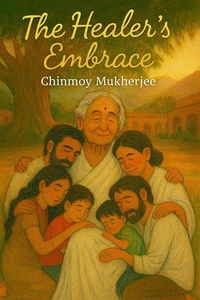The novella "The Second Pilgrimage of Xuanzang" reimagines the ancient Chinese monk Xuanzang (Yuan Chwang) as a time-displaced pilgrim thrust into 21st-century India, where his quest for the "True Dharma" collides with modern realities. Beginning at Delhi's airport, he encounters bureaucratic hurdles and linguistic barriers, such as being fined for not speaking Hindi, setting the tone for a pilgrimage marked by cultural clashes across states.
In West Bengal during Durga Puja, he faces coerced donations amid festive fervor; in Odisha's Jagannath Temple, demanding priests and language demands in Odia test his resolve; while in Telangana, Hyderabad's chaotic traffic and Urdu surcharges highlight transactional interactions. Further south in Tamil Nadu, indifference turns to outrage over a linguistic mishap, and in Maharashtra, threats of violence for not speaking Marathi force him to feign deafness.
In Karnataka, a simple misunderstanding escalates into public humiliation, amplifying the novella's exploration of India's deep regional pride, linguistic divisions, corruption, and infrastructural woes like potholes, all paralleling Xuanzang's historical travels. As Yuan Chwang reflects on these trials, including digital echo chambers fueling "language wars" and viral videos of his own mishaps, his journey evolves from cataloging fractures to seeking unity.
Amidst the chaos, he discovers quiet acts of kindness-translations from strangers, shared smiles, and multicultural harmony in everyday life-that reveal India's resilient essence beneath surface divisions. Culminating in an ordinary park where children's playful babel transcends barriers, he achieves enlightenment, recognizing linguistic and cultural strife as illusions masking a profound national interconnectedness.
Returning to the airport, his humble admission of learning Hindi earns respect, and he departs with a "modern scroll" of digital experiences, carrying lessons of empathy and the enduring human spirit in a contradictory yet beautiful India.
The novella "The Second Pilgrimage of Xuanzang" reimagines the ancient Chinese monk Xuanzang (Yuan Chwang) as a time-displaced pilgrim thrust into 21st-century India, where his quest for the "True Dharma" collides with modern realities. Beginning at Delhi's airport, he encounters bureaucratic hurdles and linguistic barriers, such as being fined for not speaking Hindi, setting the tone for a pilgrimage marked by cultural clashes across states.
In West Bengal during Durga Puja, he faces coerced donations amid festive fervor; in Odisha's Jagannath Temple, demanding priests and language demands in Odia test his resolve; while in Telangana, Hyderabad's chaotic traffic and Urdu surcharges highlight transactional interactions. Further south in Tamil Nadu, indifference turns to outrage over a linguistic mishap, and in Maharashtra, threats of violence for not speaking Marathi force him to feign deafness.
In Karnataka, a simple misunderstanding escalates into public humiliation, amplifying the novella's exploration of India's deep regional pride, linguistic divisions, corruption, and infrastructural woes like potholes, all paralleling Xuanzang's historical travels. As Yuan Chwang reflects on these trials, including digital echo chambers fueling "language wars" and viral videos of his own mishaps, his journey evolves from cataloging fractures to seeking unity.
Amidst the chaos, he discovers quiet acts of kindness-translations from strangers, shared smiles, and multicultural harmony in everyday life-that reveal India's resilient essence beneath surface divisions. Culminating in an ordinary park where children's playful babel transcends barriers, he achieves enlightenment, recognizing linguistic and cultural strife as illusions masking a profound national interconnectedness.
Returning to the airport, his humble admission of learning Hindi earns respect, and he departs with a "modern scroll" of digital experiences, carrying lessons of empathy and the enduring human spirit in a contradictory yet beautiful India.

 , qui est-ce ?
, qui est-ce ?